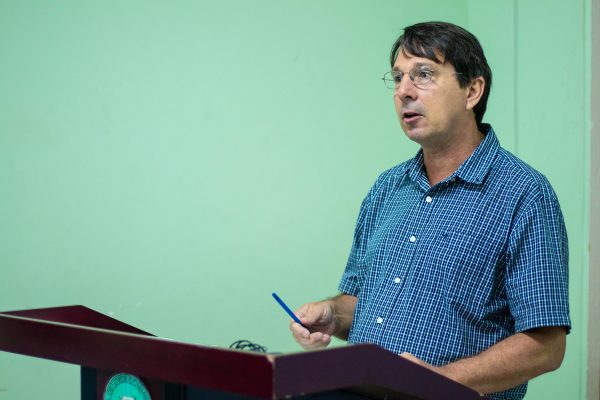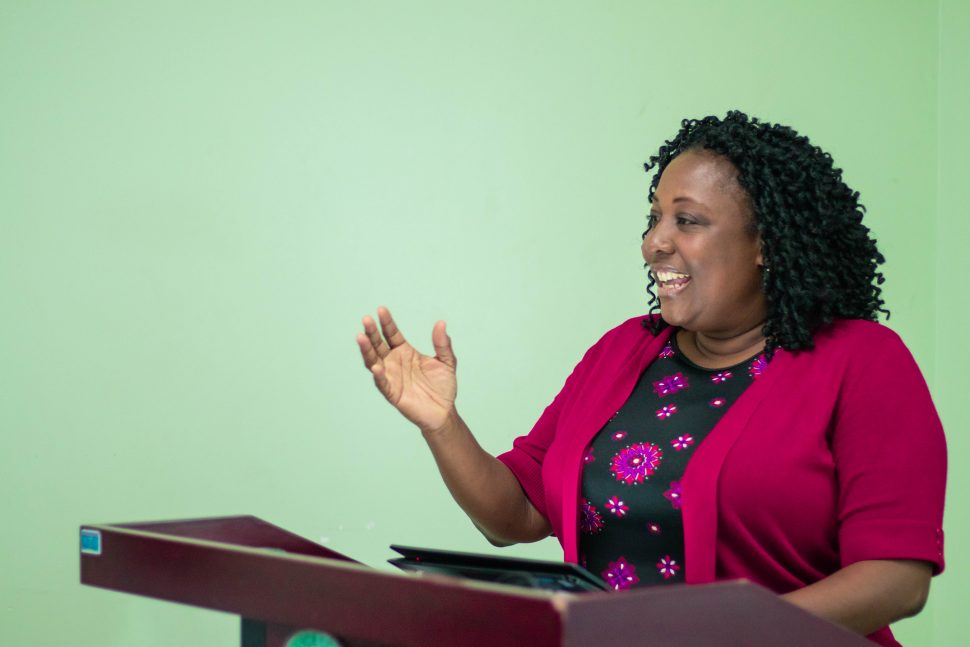Protecting children during disasters was the target of a forum last week encompassing the Civil Defence Commission (CDC) and a number of its partners.
The CDC in collaboration with the United Nations Children’s Fund (UNICEF), the Caribbean Disaster and Emergency Management Agency (CDEMA) and the Belize National Emergency Management Organisation, on Wednesday opened a national consultation for Disaster Risk Reduction (DRR) actors in Guyana,
According to a Ministry of the Presidency (MotP) press release, this collaboration seeks to develop a Protocol for the Integrated Protection of Children and Adolescents and is intended to support national emergency units.

The participants at the consultation were drawn from UNICEF Guyana, the Guyana Defence Force, the Childcare and Protection Agency, the CDC, Ministry of Public Health, Ministry of Social Protection and other agencies which have roles to play in disaster response and management, the MotP release added.
Director General (Ag) of the CDC, Lieutenant-Colonel Kester Craig, in his opening remarks, said it is no secret that Guyana, like many of any other Caribbean states, has increasing vulnerability and exposure to natural and anthropogenic hazards, compounded by the threats of climate change and emerging threats such as oil spills.

He noted that these hazards do not impact every individual equally, and some groups, due to unique characteristics, are especially vulnerable and suffer greater impact in disaster situations. Women, persons with disabilities, children and young people are among these vulnerable groups, and are oftentimes susceptible to the highest levels of injury, displacement and disruption when a hazard strikes, Lieutenant Colonel Craig said.
“The CDC recognises that if we are to achieve our mandate of building resilience across Guyana, we must identify and address the peculiar situations of these vulnerable groups. We believe that the protocol for the integrated protection of children and adolescents in disaster situations, which is being developed by our regional partners, is a useful step towards this objective,” the Director General (Ag) was quoted as saying.
UNICEF Guyana, Emergency Focal Point, Ian Jones, who spoke on behalf of Patricia Gittens, the Child Protection Specialist from the same organisation, said UNICEF along with CDEMA are partnering in the Caribbean region for the development of Protocols for Child Protection during emergencies. This partnership is geared at strengthening the focus on ensuring that the rights of all children everywhere can be maintained in humanitarian situations. He noted that similar consultations will also be held in Barbados (for the Eastern Caribbean) and Jamaica.
UNICEF Belize, Early Childhood Development and Education Officer, Denise Robateau, said “The Protocol and deliverables that we want to bring is [one] that will guide national emergency responsible units, placing the needs of children, women and adolescents at the centre of emergency response strategies and programmes. The Protocol will include a step by step guide on how to do it and will review existing national tools and mechanisms to ensure that the rights of children are fully included. The Protocol will reflect national, regional and international agreements on integrated protection of children as well as Conventions and existing Protocols. When we speak about the protection of children we are not only zeroing in on the ending of violence or abuse against children but we are looking at the overall survival aspect of that child and what that child needs to survive; sanitation, hygiene, water, protection, right to education among others. All of these rights are important during the preparedness, response and recovery phases,” the UNICEF Officer was quoted as saying.






